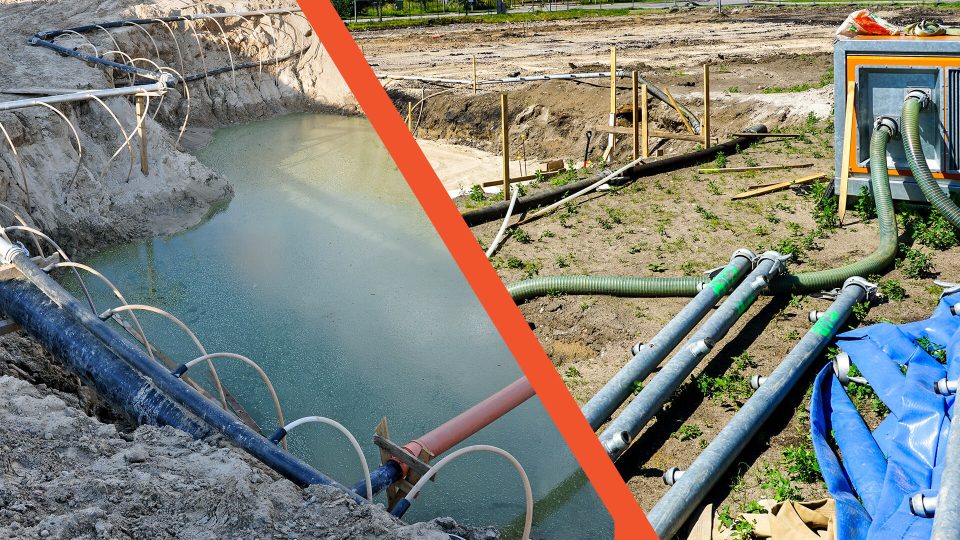Summer poses particular challenges for the construction industry. Heat, sudden heavy rainfall and fluctuating groundwater levels can make working on construction sites more challenging. Dewatering pumps are required to keep pits, shafts and trenches dry and safe.
Increasing weather extremes present construction companies with new challenges. While periods of drought cause dust pollution and falling groundwater levels, short, intense periods of rainfall are increasingly leading to the flooding of construction pits. Without reliable dewatering systems, companies risk delays and damage to machinery, materials and structures.
Thanks to their robust design, motor protection measures and forced lubrication, Tsurumi pumps are specially designed for tough, continuous use on construction sites. Models such as the KTZ dewatering pumps and the LSC residue drainage pumps perform reliably even in high temperatures, heavily contaminated water and irregular water volumes. Thanks to their dry-running properties, they can be used without supervision..
Dry-running endurance test
“In summer, speed and reliability are key,” explains Stefan Himmelsbach, an application expert at Tsurumi (Europe) GmbH. “Our pumps are built to keep operations running, even during heatwaves and storms.”
One example illustrates the benefits in everyday life: During the construction of the Mercaden Centre in Böblingen, Germany, for example, the 12.000 m³ excavation pit was repeatedly affected by downpours over a period of 17 months. The construction company used pumps from the KTZ and LB series to drain all the groundwater and rainwater away. This was done via collection shafts with a diameter of just 400 mm, so slim, space-saving models were required. The pumps’ water levelling electrodes took over control without any human intervention. ‘Without the pumps, we would have lost many hours of work,’ said someone on site. The technology worked reliably in temperatures of up to 30 degrees Celsius and during sudden heavy rainfall.
Frictional heat is effectively dissipated
The Japanese manufacturer has taken good technological precautions, using materials such as silicon carbide – which is second only to diamond on the hardness scale – in the double mechanical seal, for example. This is located in the centrifugal force-controlled oil distributor, which lubricates the shaft regardless of its position. As a side effect, this ensures that the frictional heat generated by the seal in contact with the shaft dissipates to such an extent that no thermal peaks occur at exposed points that could lead to material failure. This is particularly relevant during slurping or dry running, when little or no cooling water is pumped. Tsurumi is the first manufacturer to relocate this critical component to the oil chamber, thus avoiding heat stress which is further intensified at high ambient temperatures.
Construction companies should prepare for the summer months well in advance and regularly check the pump technology on the construction site. Providing powerful pumps for heavy rainfall events and thermally resilient units should now be part of any prudent construction planning. As the largest manufacturer in the industry, the Germany-based EU branch has also prepared logistically for peak demand: Almost all of its 500 pump models, which have capacities of up to 30 m³/min and delivery heads of up to 216 m, are available from stock. “Dewatering should not fail due to delivery time constraints right from the outset”, told Tsurumi.

previous post

